The EB-2 visa is available to certain immigrants by virtue of their professional abilities. Those who obtain approval of an EB-2 petition are eligible for lawful permanent resident status in the United States, making this a powerful option for those who qualify.
Who qualifies for EB-2 classification?
EB-2 classification is available to foreign nationals who (a) have advanced degrees, or (b) possess what USCIS calls “exceptional ability.” Advanced degrees are those that are the equivalent of a U.S. Master’s degree or higher. USCIS defines “exceptional ability” as “a degree of expertise significantly above that ordinarily encountered in the sciences, arts, or business.” A seasoned immigration attorney can help you determine whether you meet either of these requirements, as it may not be immediately obvious to you.
If you believe you meet this initial threshold, an EB-2 could be right for you – but you still have options within the EB-2 process itself.
Two EB-2 Options – Labor Certification and National Interest Waiver (“NIW”)
Labor Certification
Some EB-2 applicants must rely on a U.S. company that would like to offer them a job and is willing to petition for them through the labor certification process. To apply for an EB-2 through this process, your U.S. job offer must first pass stringent review by the U.S. Department of Labor (“DOL”). Your employer must demonstrate that there are no U.S. workers who are able, willing, and qualified to accept this position. Additionally, DOL determines the prevailing wage for this position based on national trends. The labor certification phase of the EB-2 process can be tricky and time consuming, but an experienced immigration lawyer can see you and your employer through the DOL system. When your employer has the DOL certification in hand, you can then submit your EB2 petition to USCIS.
National Interest Waiver
In some cases, the labor certification phase can be waived entirely based on U.S. national interest. If your area of work provides a significant benefit to the United States, you may be eligible for this National Interest Waiver (“NIW”) as a self-petitioner. While NIW self-petitioners get to bypass the entire labor certification process, they must successfully demonstrate to USICS that they are well-positioned to advance their work in the United States, and that doing so provides a significant benefit to the United States. A successful NIW petition must be based on existing federal caselaw, so it is critical that an experienced immigration lawyer be involved in crafting this argument.
If you think you may be eligible for EB-2 classification, an immigration lawyer can help you determine which type would be best for your circumstances and immigration goals.
What Else is Required?
All employment-based petitions require extensive evidence of the applicant’s qualifications. To apply for EB-2 classification, you should be prepared to submit evidence of your advanced degree(s) or evidence to show that you possess exceptional ability. The good news is that many types of evidence can be used to demonstrate your expertise in your field, including transcripts, diplomas, awards, publications, expert letters, and more. While you may not have every type of item that can be used to show exceptional ability, you may be able to include additional comparable evidence to round out your application and establish that you are an expert in your field.
Finally, as always, applicants must pass a background check, which includes a review of their criminal history and immigration history. Some applicants who are outside the United States may also be required to attend an interview at the U.S. consulate or embassy in their home country, where they will be asked questions about their qualifications and job offer.
The Takeaway
The EB-2 visa provides an excellent opportunity to those who qualify. Unlike some employment-based processes, having an approved EB-2 petition allows you to obtain lawful permanent residence (a green card) and eventually even U.S. citizenship. The benefits are even more significant for NIW self-petitioners who can obtain lawful permanent residence status based on their own accolades alone, without relying on a U.S. petitioning company.
The EB-2 process is complex. As is so often the case, an otherwise eligible applicant may risk being denied the classification if their submission to DOL or USCIS lacks concrete information and sufficient evidence. Please consult with an experienced immigration attorney to review your qualifications for EB-2 eligibility and to see you through the process. The outcome could be life-changing.

